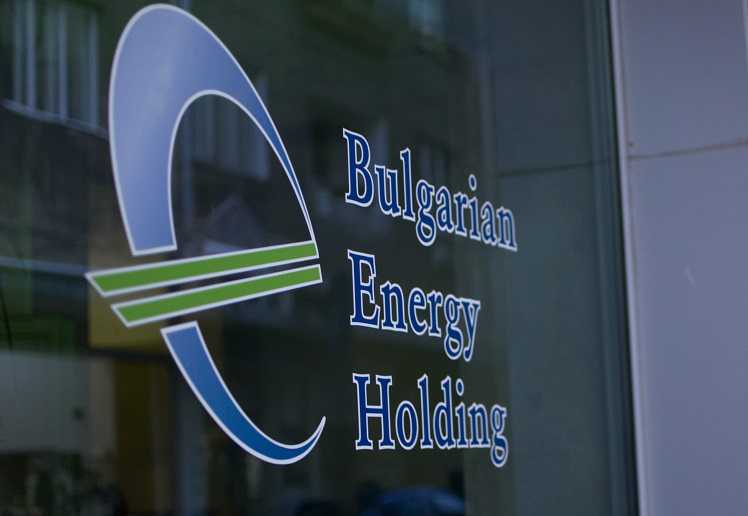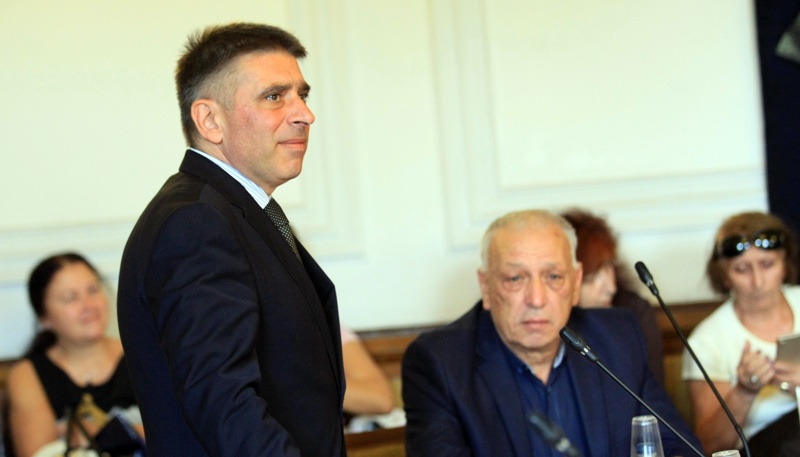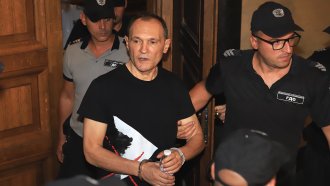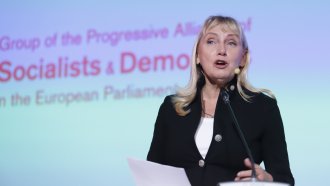Commentary:
‘Tis the season: Mark Ghirardelli wakes up majority shareholder of Yulen
Yulen, which is the concessionaire of Bansko ski zone, and at the very heart of some of the most heated controversy regarding the expansion of the Bansko ski zone, suddenly decided to tackle the PR disaster that it its ownership. The chosen PR strategy is doomed to fail spectacularly.
The ownership of the joint stock company has always been a taboo for this and other Bulgarian governments, to the point of parody. The official owner, at least on paper, is one Georgius Georgiu, a Greek citizen, reportedly indigent. Whenever authorities are asked to answer who is the real owner of Yulen, the questions are always evaded, and this has gone on for years.
Right until earlier this year when PM Boyko Borissov said in a TV interview that “everybody knows the real owner of Yulen is First Investment Bank’s majority shareholder Tseko Minev”. The bank immediately denied the information. Later hief Prosecutor Sotir Tsatsarov said the Prosecutor’s Office knows but he personally can’t recall the name.
As for “everybody knows”, it is a public secret that Minev owns Yulen, along with Vitosha Ski – the company that owns the lifts on Vitosha Mountain – another focal point of in the public’s view. But no one has ever confirmed this information officially.
Tseko Minev is one of the majority holders of the First Investment Bank. Just several days ago one of Yulen’s Board of Directors’ members, Petar Petrov made a statement that Yulen does not have any loans from FIB or any other bank. The statement was a follow up to an official question by Capital Weekly regarding Yulen’s debts. But according to Capital Weekly and other numerous reporting over the years, the prime financer of Yulen is precisely FIB, and this is confirmed by official audit documentation of Yulen, which are a matter of public record. The loans amount to at least about 100 million leva, and if Petrov is telling the truth, it is likely those have been merely restructured somehow. According to reporting by the investigative journalism site Bivol, the amount of loans from FIB to Yulen run many times higher.
So, if indeed Minev is the real majority shareholder of Yulen, the obvious problem with uncovering this ownership is that it would mean he is issuing loans to himself, for one, and two, in large amounts. Apart from being illegal, it is not far from the model, which collapsed the Corporate Commercial Bank back in 2014. If this is the structure of ownership, it is understandable why governments and FIB alike bend over backwards to hide it.
It seems this PR crisis of sorts has been running a bit longer than the unnamed majority holder has had the patience for. Enter skiing mega star Mark Ghirardelli. Ghirardelli went out and announced he is the real owner of Yulen. Apparently, also, someone at the top had decided that the story that a Greek indigent is the majority shareholder of Yulen somehow doesn’t sound too believable. And bringing in a world-class ski legend with five world cups under his belt is the instant fix for that.
One funny detail to keep an eye for (which the authors of this spectacular PR fail obviously have not) is that back in 2015 the Ministry of Tourism named Ghirardelli an official consultant for winter ski tourism strategy of Bulgaria. Then (and now) Minister Nikolina Angelkova announced back then that Ghirardelli will also be the ambassador of Bulgarian winter tourism to the world. This in itself isn’t interesting but it raises a bunch of questions if indeed Ghirardelli is the recipient of the concession for Bansko ski zone; the Bulgarian government(s) have always said they know who owns Yulen, and that they must. So, how could they keep on a consultant, who owns the private company, which operates Bansko and how is this not lobbyism. Which, as we’ve had many occasions to point out in these pieces – is illegal in Bulgaria and thus by default – a corruptive scheme. The government will at the very least have to answer to that.
If the announcement that Ghirardelli is the real owner of Yulen is true, and – as he claims – the transfer began back in 2012, this puts PM Borissov is an extremely comical position: does he not know who the owner of Yulen is or is he merely confused? Both are equally concerning.
Or is this just the consecutive theatrical experiment, done with little attention to detail and even less talent, aimed at distracting the public from the obvious: that it is being lied to, while its state is being captured and drained. But however obvious it might seemz, the fact is that the scheme has worked once before: with the collapse of the Corporate Commercial Bank. And it might just work again.
Meanwhile just last week Environment Minister Neno Dimov sat down with Yulen executives to negotiate a new concession contract. Why a new contract? Because Yulen has breached the current one spectacularly over the years. As a result, the ski zone has illegaly expanded to almost double the size of the concession contract for the Bansko ski zone in Pirin National Park. Instead of fining or even prosecuting Yulen for the violations, the government has decided to renegotiate a new contract. The document, which is currently being drafted will include the territories, which Yulen has – well, seized – over the years and – by assurances by the minister – will increase ‘significantly’ the concession fee, which Yulen pays the state.
‘Tis the season, indeed.
In other news:
European Commission fines Bulgarian Energy Holding 77 million euro for abusing dominance position on energy market

The state-owned Bulgarian Energy Holding will probably appeal the European Commission’s fine of 77 million euro for blocking access of competitor private companies to the gas infrastructure in Bulgaria in the period 2010-2015 by BEH’s daughter companies Bulgargaz (gas supply) and Bulgartranzgaz (gas infrastructure).
“The companies will examine carefully EC’s decision and will likely appeal and challenge it both in terms of the allegations, and in terms of the amount”, BEH declared in a statement on Wednesday.
The statement also says that although the fine is due to be paid in three months’ time from EC’s decision, in case an appeal procedure is underway, BEH can make just a provisional payment.
Along with BEH Energy Minister Temenuzhka Petkova also expressed disagreement with the fine. Petkova went so far as to claim that the fine is not for a breach of the Third Energy Pact but because the EC sees a risk for third party companies to use the gas infrastructure.
“This structure [of BEH] is fully compliant with EU regulations but the EC asserts that this model is not the best one. In these past three years of talks and all levels – political, and expert – we have discussed different options for tackling situation on numerous occasions. We proposed taking Bulgartransgaz and Bulgargaz not only out of BEH but from the Energy Ministry altogether and to attach them to a different ministry, but according to the EC this way the state’s control will remain fully intact, even if [the two companies] are not part of BEH and the Energy Ministr.”, Petkova told reporters. And added:
“We cannot take any other actions or steps, which would put our energy security at risk. We even proposed for another operator to become a minority shareholder in Bulgartransgaz, which would give the EC guarantees that the EU requirements are being met, but the EC did not accept this proposal.”
Both BEH and Petkova’s position has been that the EC required for Bulgartranzgaz and Bulgargaz to bi privatized, which is something they say they cannot allow. PM Boyko Borissov also commented something along those lines.
EC Competition Commissionaire Margarethe Vestager quickly set the record straight and said that the EC has only insisted BEH be restructured and for Bulgartransgaz and Bulgargaz to be taken out of it. This way they wouldn’t be able to easily to coordinate joint actions against competitors.
Mediapool asked Petkova how come her statements differ from Vatager’s and who is not telling the truth. She said:
“I always tell the truth and the talks we have had, I haven’t had them by myself, we had them with colleagues. There is a correspondence on the issue.”
Vice PM Tomislav Donchev also joined in and made similar statements on the matter:
“[We discussed with the EC] tens of different options for measures for Bulgaria to take […] in order for Bulgargaz and Bulgartransgaz to change their attitude on the market. Bulgaria has proposed more than once all kinds of measures, which [the commission rejected]. Our collegues from the EC insisted that at least one of the companies change their ownership.”, Donchev said during a Cabinet meeting.
“[…] Bulgaria made many proposals to guarantee transparency, control, the establishment of a second level of oversight, management, including established European experts in the board. But the EC’s proposal is that the only way to guarantee that there is no [hidden deals] distorting the market is if for the company to be sold […] to a strategic investor – a different European company, which Bulgaria cannot accept.”
Bulgartransgaz opens public contract tenders for Turkish Stream a day before the holidays

On the final workday before the holiday season Bulgartransgaz announced the tenders for the public procurements for gas transfer from the future Turkish Stream. The contracts for constructing the pipe, which would start at the Bulgarian-Turkish border and end at the Bulgarian-Serbian border will cost 2,2 billion leva.
The transit taxes, specified in the documents, and approved by the national energy regulator, are for Bulgartransgaz to receive just under 330’000 million leva annually.
The national regulator has kept the initial index for return at 8.86%, which Gazprom protested as being too high, but the regulator has apparently ignored the complaints.
Bulgartransgaz will open a different procedure for the construction of compression stations in the future.
President Roumen Radev vetoes bill introducing ‘secret’ arrests

President Roumen Radev vetoed the bill, which was introduced earlier to Parliament and which provides authorities the right to keep arrestees from contacting their families for up to 24 hours and up to 48 hours is some cases. Moreover, the 24-hour option would also apply in cases in which the arrestee is underage: a measure, which the President implied would attack in the Constitutional Court in passed.
“The President supports the efforts and measures in the fight against terrorism, organized crime and other forms of serious crimes as justified and called for but does not agree with the legislator’s approach. Without a clear definition of the type of individual and crime in which giving out information of an arrest may be postponed, a possibility for disproportionate violations of rights opens and a risk arises for the extraordinary to become the norm.”, President Roumen Radev’s statement for the veto reads.
The so-called ‘secret’ arrests caused a lot of concern among the non-parliamentary opposition and civil rights experts and activists. In their view the bill is nothing more than an intimidation tool, in harsh violation of human rights. In essence, what it would do is to take away the right to contact family members but not council, which is both pointless in terms of what the bill declares as its aim (one could instruct their council to contact whomever they wish on their behalf) but still highly repressive and intimidating.
According to the authors of the bill, the option is there to be enforced in cases, in which the arrestee may be a threat to the lives or wellbeing of people involved in the investigation. Or, for example, as GERB MP Dimitar Lazarov put it, if there is an ongoing investigation about a kidnapping and authorities are after two suspects, and manage to catch one of them, they could immediately inform the other.
For one, such a justification is extremely dangerous, as the legislator should not design laws based on the off-chance of a particular case occurs, and two, conducting laws, and repressive ones for that, with the undivided presumption that the hypothetical arrestee is guilty attack democracy at its very core.
The veto will probably not survive the vote in Parliament, though.
Governments retracts the option for the Anticorruption Commission to make indefinite inquirers for assets confiscation

The head of the Parliamentary Justice Committte Danail Kirilov from the ruling GERB withdrew the parts of the recent bill of amendments regulating the Anticorruption Commission, which would have allowed the commission to make inquireries and launch proceedures for confiscation indefinitely. The non-parliamentary opposition and many civil rights experts sharply criticized the contravercial proposal. They also expressed concern that such a legislation would breach international law and is essencially an exssessive repression tool in the hands of those in power.
At the same time, however, the committee passed on its second reading other equally disturbing amendments, which give the commission the right to continue and even carry out procedures for illegal assets’ confiscation even in cases where the court has ruled on the individual’s innocence regarding these assets’ supposed illegality. In fact, the Supreme Court of Cassations just recently ruled that all procedures must be discontinued without prejudice in case of a court rules innocence, dismisses the relevant case and so on. This means, that if the bill is enacted into law, it would essentially reverse the Supreme Court of Cassations’ ruling. In fact, the reason Kirilov was so eager to introduce the amendments quickly to Parliament was precisely to try and bypass this ruling.
Dessislava Ivancheva and Bilyana Petrova released under house arrest for the third time

Over the past month the Specialized Court released ex-mayor of the Sofia district of Mladost Dessislava Ivancheva and her deputy Bilyana Petriva three times. The appeals’ court reverses the decision every time.
The two are on trial for receiving a 70’000-euro bribe in for issuing a construction permit. They have remained in jail ever since their arrest in mid-April.
Both women’s health has been getting worse over the past several months. This is one of judge Hinov’s motives for releasing them, apart from the fact that the prosecutors are done presenting their case to court and have questioned all witnesses: the court’s reason to keep them in jail in the first place was to prevent potential witness’ tampering. The court of appeals has reversed the decision to let them out of jail twice now; the prosecutors have submitted an appeal for the third decision as well.
The jail where Ivancheva and Petrova are held is barely livable and the conditions are dreadful. The two women have been complaining about them, and have threatened to sue Bulgaria in the European Court for Human Rights, but have been generally ignored by the authorities. Some, including Justice Minister Tsetska Tsacheva claimed the conditions in the jail meet all EU standards. Then Bulgaria’s ombudsman Maya Manolova went to visit the cells where the two women lived and released photos, which showed without a shadow of a doubt that the conditions in the jail are beyond horrific.
Daniel Kaddik: Bulgaria is more hopeless now compared to six years ago
“Bulgaria today is more hopeless politically compared to six years ago”, Daniel Kaddik of the Freidrich Naumann Foundation said this week in an interview for Bloomberg TV. Karddik has lived in Bulgaria for the past six years.
“When I came initially six years ago, I caught the protests, which had just started, for the high electric bills, and I thought to myself that I have come to a country, which will likely overturn the status quo. Especially given the protests that followed – against Oresharski’s government. But, alas, I see Bulgaria more hopeless today than I saw her six years ago – with a well-established centralized status-quo, and also with a government and administration, which are unlikely to change.”
Ключови думи
За честна и независима журналистика
Ще се радваме, ако ни подкрепите, за да може и занапред да разчитате на независима, професионална и честна информационно - аналитична медия.
 0 коментара
0 коментара
Екипът на Mediapool Ви уведомява, че администраторите на форума ще премахват всички мнения, съдържащи нецензурни квалификации, обиди на расова, етническа или верска основа.
Редакцията не носи отговорност за мненията, качени в Mediapool.bg от потребителите.
Коментирането под статии изисква потребителят да спазва правилата за участие във форумите на Mediapool.bg
Прочетете нашите правила за участие във форумите.
За да коментирате, трябва да влезете в профила си. Ако нямате профил, можете да се регистрирате.




